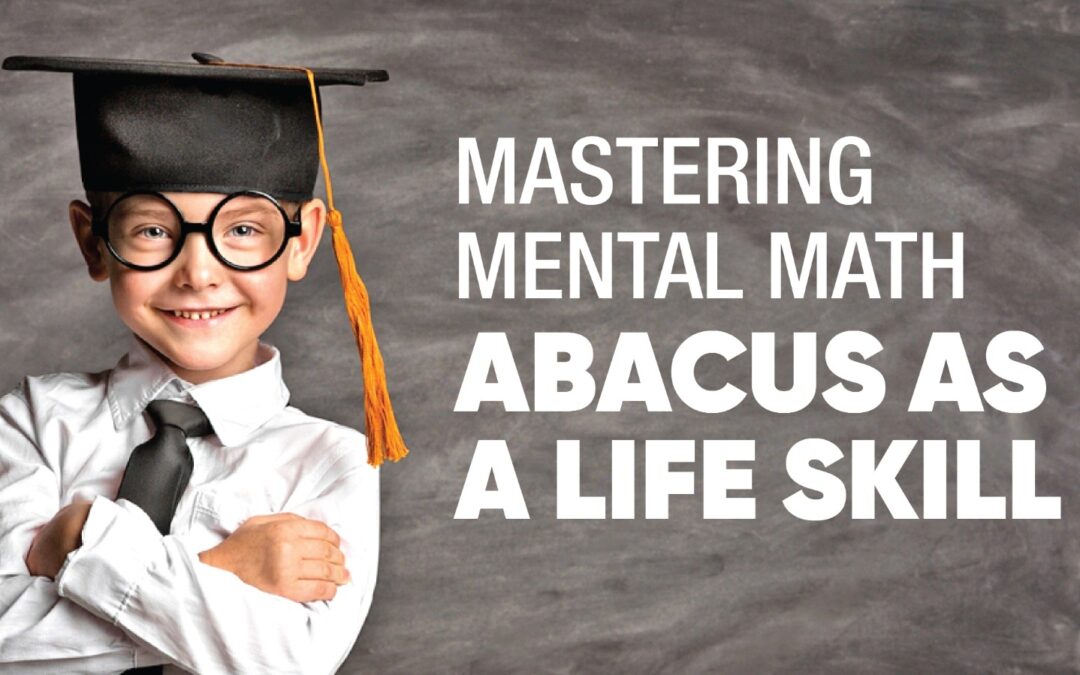Introduction:
In an era driven by technology, the ability to swiftly perform mental math calculations remains a valuable skill. One method that has stood the test of time is the use of the abacus. Beyond its historical significance, the abacus offers cognitive benefits that enhance problem-solving, concentration, and mathematical aptitude. This blog delves into the world of mental math mastery through the lens of the abacus, shedding light on its benefits and how it can be a valuable life skill.
- A Historical Glimpse:
The abacus, with its origins dating back thousands of years, has been a universal tool for calculations across cultures. Its simple yet effective design enabled traders, scholars, and individuals to perform arithmetic operations with remarkable speed. - Cognitive Benefits of Abacus Training:
Engaging with the abacus stimulates various cognitive skills, including: • Enhanced Concentration: Abacus training demands focused attention, fostering concentration and mindfulness.
• Quick Mental Calculations: Practicing with the abacus enables learners to perform calculations mentally with speed and accuracy.
• Visual-Spatial Skills: Manipulating beads on the abacus aids in developing spatial awareness and visualization abilities.
• Problem-Solving Acumen: The structured approach to mental math cultivates logical thinking and problem-solving skills. - Boosting Mathematical Proficiency:
The skills cultivated through abacus training have a positive impact on overall mathematical proficiency: • Foundation for Complex Math: The abacus lays the groundwork for understanding complex mathematical concepts, including algebra and calculus.
• Math Fluency: Abacus-trained individuals exhibit improved math fluency and numerical intuition. - Translating to Real-World Scenarios:
The benefits of mastering mental math through the abacus extend beyond academics: • Everyday Calculations: Quickly calculating bills, discounts, and expenses becomes effortless.
• Professional Advantage: Proficiency in mental math can be advantageous in various careers, such as finance, engineering, and data analysis.
• Enhanced Problem Solving: The cognitive skills honed with the abacus translate to better decision-making and critical thinking. - Abacus Training Approaches:
Modern abacus training blends tradition with technology: • Physical Abacus: Learning to manipulate a physical abacus builds tactile skills and concentration.
• Digital Abacus Apps: Interactive apps offer the convenience of virtual abacus practice, adapting to the digital age. - Cultivating a Lifelong Skill:
Investing time in abacus training early in life sets the stage for long-term benefits: • Neuroplasticity: Developing mental math skills contributes to brain plasticity, enhancing cognitive resilience as one ages.
• Confidence Boost: The mastery of mental math fosters self-assurance and a positive attitude towards mathematics.
Conclusion:
Mastering mental math through the abacus is a journey that intertwines history, cognitive development, and practical skills. Beyond the computations themselves, the benefits extend to problem-solving, mathematical proficiency, and even personal growth. Embracing the abacus as a life skill empowers individuals to navigate a world where quick and accurate mental calculations remain invaluable.



Recent Comments